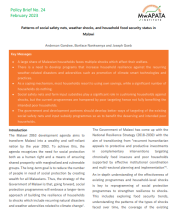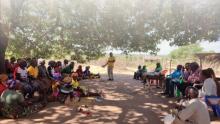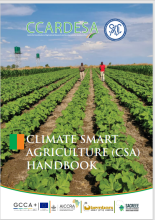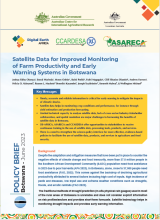Maize is a third important cereal crop in the world after wheat and rice. In Zambia, it is an important staple crop. Its production is however hampered by both biotic and abiotic factors. Among the abiotic factors, Aluminum (Al) toxicity causes high yield losses and is directly linked to acidic soils. Application of lime can ameliorate this problem, but it is expensive for small scale farmers.
Developing maize varieties that are tolerant to Al toxicity is cheaper and feasible for small scale farmers. The purpose of this research was to investigate the type of gene action conditioning tolerance to aluminum toxicity in tropical maize. Eleven inbred lines were mated in an 8 male (4 moderately tolerant and 4 susceptible) x 3 female (resistant) North Carolina Design II. Results revealed that general combining ability (GCA) effects due to both males and females were highly significant (P≤ 0.001) for root biomass. The shoot length GCA effects due to both male and female respectively were significant (P≤ 0.01). Similarly, the GCA effects due to females and males for root length were significant, P≤ 0.01 and P≤ 0.05 respectively. The genotype CML 511 had the most desirable significant GCA effect value (1.40) for root length among the male lines while CML 538 had the most desirable significant GCA effect value (0.92) among the female lines. The baker’s ratio for root length was found to be 0.49 implying that both additive and non-additive gene action were important in conditioning aluminum toxicity tolerance in tropical maize.
Ndeke V., & Tembo L. Investigating the Type of Gene Action Conditioning Tolerance to Aluminum (Al)
Toxicity in Tropical Maize (2019). 2(4): 1-8, 2019
























































